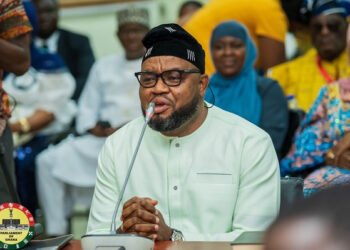Ghana’s Ministries of Roads and Gender, Children, and Social Protection have joined forces to launch the Drivers and Vehicle Licensing Authority’s (DVLA) Policy for Training and Testing of Drivers with Disabilities.
The 56-page policy document was unveiled with the National Council on Persons with Disabilities (NCPD) at the Shippers Authority in Accra for the second National Disability Summit.
The national summit was held on the theme: “Achieving a sustainable dignified life for persons with disabilities: the roles and contributions of stakeholders.”
The Ghana National Association of the Deaf (GNAD) has since hailed the move as a huge success for the country’s disability community, as the policy now allows more than 470,737 deaf and hard of hearing people who qualify to obtain a driving license.
However, she acknowledged that, even though policies, programmes, practices, and attitudes were being inclusively influenced, the process had been slow, adding, “but significantly marked by dotted impacts being made through silos of disability-inclusive activities across the country.”
Dr Afisah Zakaria, Chief Director, Minister of Gender, Children, and Social Protection, said the government has taken steps to reduce the inequalities that people with disabilities face, as addressed in the Open Government Partnership’s 4th National Action Plan, among other initiatives aimed at eradicating stigma and discrimination.
Other initiatives she mentioned included the nationwide implementation of inclusive education, progressive economic empowerment, deliberate steps for the inclusion of women and girls with disabilities, ensuring the inclusion of people with disabilities in humanitarian contexts, accessibility for all, and quality disaggregated data on people with disabilities.
The summit was funded by the United Nations Children’s Fund (UNICEF) and the United Nations Resident Coordinator Office.
The theme for the second disability inclusion summit, according to Ms. Esther Akua Gyamfi, Executive Secretary of NCPD, was revealed in many efforts in Ghana beyond aid.
She noted that it provided members of disability inclusion movements with a memorable opportunity to share their progress and contributions to the achievement of the Global Disability Summit on the dignity of people with disabilities.






























































